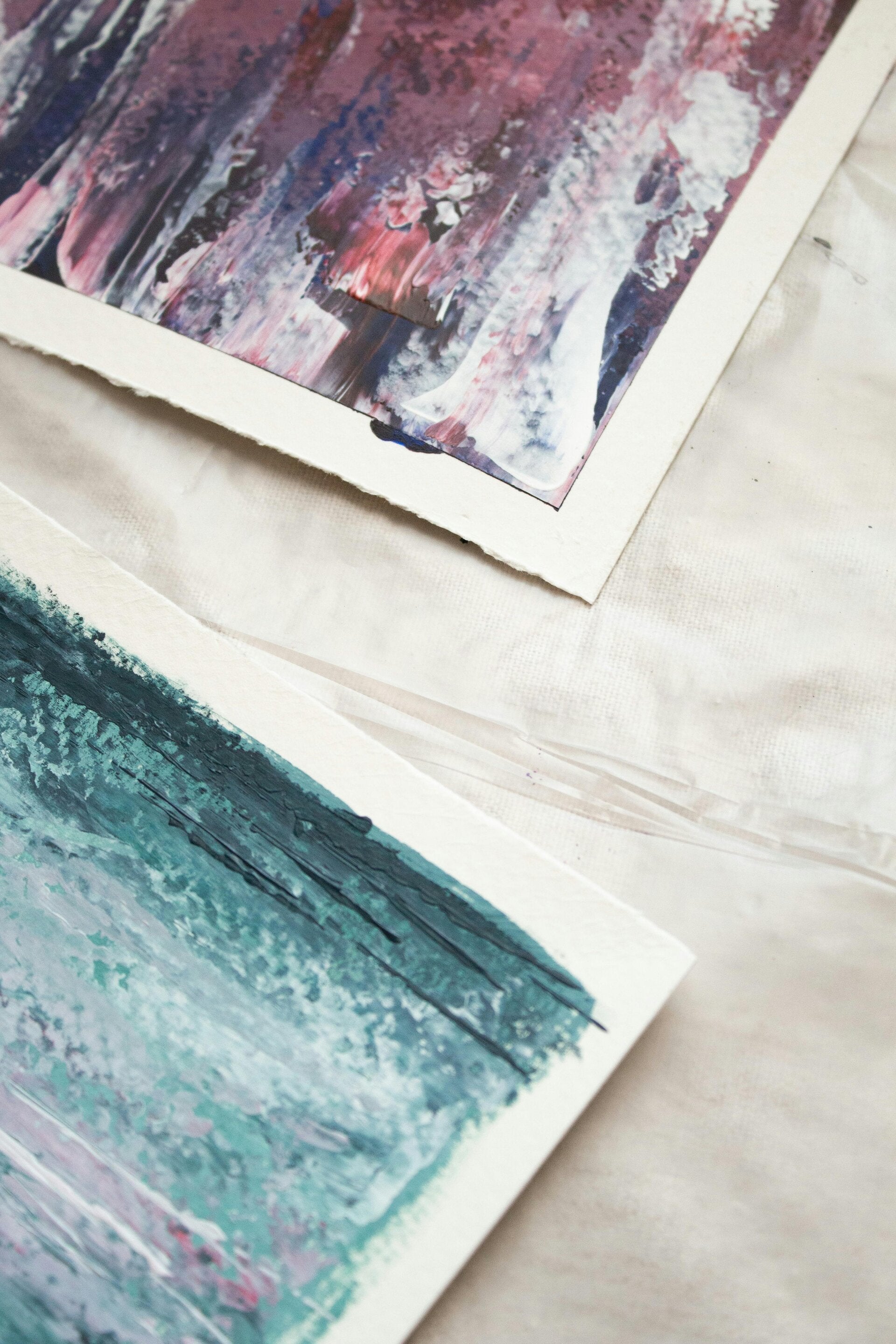Frequently asked questions
At Safe Harbour Expressive Therapies, we understand you may have questions about our approach and what to expect. Here you'll find answers to some frequently asked questions to help you understand how we can support your journey of well-being through the arts.
What are expressive arts therapies? How do they work?
Expressive arts therapies are unique approaches using psychotherapy combined with various art forms (like visual arts, music, drama, and movement) to help you safely and effectively process your experiences.
Talking about our feelings, thoughts, and daily experiences with someone we trust is a fantastic way to feel validated. But when we're stressed, words may not always be enough to describe what we're going through. Ignoring internal reactions to external events may work for a limited time, but can create serious issues with our mental and physical well-being in the long term.
Finding other ways to express ourselves is crucial to better overall health.

What kind of results or benefits can people typically expect from expressive therapy at Safe Harbour?
Though no therapy is guaranteed to deliver the same results to everyone, an increasing number of studies* have shown the benefits of expressive arts therapies. Clients often experience increased self-awareness, emotional regulation, reduced stress and anxiety, improved communication skills, and a greater sense of well-being through our expressive therapy sessions.
* - Article list on demand
What makes Safe Harbour Expressive Therapies' approach to art therapy unique?
The term "art therapy" is widely used as a description in fine arts, education, and health care.
Please understand that there's a drastic difference between a description of "therapeutic art" (after all, all art is therapeutic!) and the creative psychotherapy used by a professional art therapist.
At Safe Harbour, it's about more than just the art. It's about your personal journey to better health and well-being. We tailor our expressive therapy sessions to meet your individual needs, goals, and budget. Through creative tools, we can explore both the inner you (thoughts, feelings, personal perspectives) and the outer you (experiences, interactions, relationships) in a confidential and supportive environment.
Sandra Hewitt-Parsons is a registered art therapist (RCAT), trauma-informed expressive arts therapist (EXAT), and a PhD candidate with Memorial University. With more than 12 years of professional therapist experience, Sandra follows the Standards of Practice and the Ethical Code of the Canadian Art Therapy Association.

How can I pay for services?
As art therapy falls under the umbrella of naturopathic services, most insurances will cover our services.
If you think our services may fall under other funding you can access (insurance settlements, community supports, other government programs...), we would be happy to write you a letter of support to ensure that help is available to you.
But I'm not creative! How can art therapy help me?
No pressure - this type of therapy doesn't require you to produce a masterpiece in your session :) No artistic experience is needed for you to participate. As professional therapists, we have expertise in both the expressive arts and psychology. This means that we'll guide you through the creative process in a therapeutic way.
We'll help you process difficult issues in a manner that's gentle, body-focused and trauma-informed.
Start your expressive journey
Ready to explore your inner world through the arts? Contact Sandra at Safe Harbour Expressive Therapies today to book your first session and discover the power of self-expression.